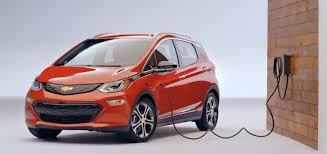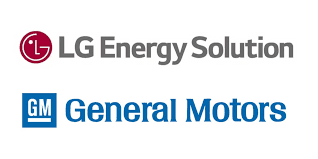GM to recall all Bolt EVs
DETROIT – General Motors is voluntarily expanding the current Chevrolet Bolt EV recall to cover the remaining 2019 and all 2020-2022 model year vehicles, including the Bolt EUV. In rare circumstances, the batteries supplied to GM for these vehicles may have two manufacturing defects – a torn anode tab and folded separator – present in the same battery cell, which increases the risk of fire. Out of an abundance of caution, GM will replace defective battery modules in Chevrolet Bolt EVs and EUVs with new modules, with an expected additional cost of approximately $1 billion.
“Our focus on safety and doing the right thing for our customers guides every decision we make at GM,” said Doug Parks, GM executive vice president, Global Product Development, Purchasing and Supply Chain. “As leaders in the transition to an all-electric future, we know that building and maintaining trust is critical. GM customers can be confident in our commitment to taking the steps to ensure the safety of these vehicles.”
After further investigation into the manufacturing processes at LG and disassembling battery packs, GM discovered manufacturing defects in certain battery cells produced at LG manufacturing facilities beyond the Ochang, Korea, plant. GM and LG are working to rectify the cause of these defects. In the meantime, GM is pursuing commitments from LG for reimbursement of this field action.

This new recall population includes:
- 9,335 (6,989 in the U.S. and 1,212 in Canada) – 2019 model year Bolt EVs that were not included in the previous recall
- 63,683 (52,403 in the U.S. and 9,019 in Canada) – 2020–2022 model year Chevrolet Bolt EVs and EUVs
To provide customers peace of mind, batteries with these new modules will come with an 8-year/100,000-mile limited warranty (or 8-year/160,000 km limited warranty in Canada).
GM is working aggressively with LG to increase production as soon as possible. GM will notify customers when replacement parts are ready.
Until customers in the new recall population receive replacement modules, they should:
1. Set their vehicle to a 90 percent state of charge limitation using Target Charge Level mode. Instructions on how to do this are available on chevy.com/boltevrecall. If customers are unable to successfully make these changes, or do not feel comfortable making these changes, GM is asking them to visit their dealer to have these adjustments completed.
2. Charge their vehicle more frequently and avoid depleting their battery below approximately 70 miles (113 kilometers) of remaining range, where possible.
3. Park their vehicles outside immediately after charging and should not leave their vehicles charging indoors overnight.
GM Blame LG for dodgy Battery Packs
Production of new Bolts on hold as GM searches for a solution to the bad battery problem.
LG Chem makes the battery packs for every Chevy Bolt, and while the problem was initially traced to one of LG’s Korean plants, subsequent investigations revealed that other LG plants were pumping out bad cells, too.
Because the defects may be more widespread than initially thought, GM has idled the plant that makes the Bolt EV and EUV. The company is not performing any repairs on recalled vehicles, either.
“If we took the battery stock that’s in the field right now or at a warehouse, we’re not confident that it is defect-free,” GM spokesperson Dan Flores told the Detroit Free Press. “Because we are not confident that LG has the capability to build defect-free products, we’ve put the repairs on hold and we are not building new Bolts. We’re not going to start recall repairs or start building new Bolts until we’re confident LG will build defect-free products.”
Both companies have “hundreds of people” working 24/7 to identify what went wrong, according to the Free Press report. GM engineers are scrutinizing LG’s production lines while others are tearing down battery packs. GM says that LG is cooperating with the investigation, providing data on request and resources to identify the issue.
This is a huge financial hit for GM. First the cost of the recall for 140,000 cars, then the loss of new Bolt sales. Plus the cost of the fires that sundry Bolts started whilst charging. Not to mention the impact of the name and reputation of GM. Would you purchase an EV from GM knowing that the companies biggest seller is not safe for use?
Partnership strained
Who will pay?
GM has recalled every Bolt made because their batteries could catch fire. GM will replace modules in more than 73,000 vehicles and said it’s trying to get LG to pay for the fix. LG, headquartered some 6,600 miles away in Seoul, said the expense will be divvied up depending on the results from a joint investigation into the root cause of the problem.
At stake is what has looked like one of the most promising partnerships in the burgeoning world of EVs. Chief Executive Officer Mary Barra is betting GM’s future on going electric, setting a goal in January to sell only zero-emission vehicles by 2035. LG Energy is pursuing a stock listing after splitting last year from South Korea’s LG Chem Ltd. and can ill afford to lose such a big customer.
“Together with our client and partners, LG is actively working to ensure that the recall measures are carried out smoothly,” the South Korean company said in an emailed statement. The root-cause investigation is being carried out by GM, LG Electronics Inc. and LG Energy Solution.
LG Electronics shares plunged 4.1 per cent on Monday in Seoul, while LG Chem’s tumbled 11 per cent, their biggest drop since March 2020. GM’s stock fell more than 2 per cent before the start of regular trading in New York.
GM first recalled about 70,000 Chevy Bolts from the 2017 through 2019 model years in November. A month earlier, the U.S. National Highway Traffic Safety Administration opened an investigation into whether the cars were prone to catch fire when parked. GM voluntarily called back the vehicles, citing issues with batteries made in Ochang, South Korea.
The automaker asked Bolt owners to take their cars to dealerships for a software upgrade that limited recharging to 90 per cent of full battery capacity as it worked to find a permanent remedy. NHTSA urged Bolt owners to park outside and away from their homes as a precautionary measure, saying it was aware of five fire incidents, including at least one that ignited a home. Not good.
The fires and challenges finding a fix are straining a 14-year relationship. When GM and LG announced they would join forces on the Bolt in 2015, they touted how virtually problem-free the battery cells were that LG supplied for the plug-in hybrid Chevy Volt, which launched in 2010.
That early track record of success is little consolation to tens of thousands of Bolt owners who are waiting anxiously for a resolution. Elise Hurwitz lives in the hills of Oakland, California, in a neighborhood at increased risk of wildfires amid the state’s ongoing drought. The 2017 Chevy Bolt parked in her driveway now makes her extremely nervous and uncomfortable.
“I really do not want to be parking my Bolt in the Oakland hills during fire season waiting for my turn for battery cell replacement,” Hurwitz said. “I would like GM to take custody of the vehicle until it is safe to park it at my home. How do I get rid of my car? I don’t want it with this risk, and I can’t sell it.”
Customers can be confident that GM is taking steps to make sure its vehicles are safe, Doug Parks, the automaker’s executive vice president of global product development, purchasing and supply chain, said in last week’s statement. “We know that building and maintaining trust is critical.”
GM and LG have little choice but to maintain close ties. They’ve started constructing two battery factories together in Ohio and Tennessee, each costing more than US$2 billion and expected to employ more than 1,000 people. GM will direct the manufacturing quality processes used at these and other yet-to-be announced cell manufacturing plants, Flores said.
The next-generation Ultium batteries going into an electric Chevy Silverado truck, Cadillac Lyric sport utility vehicle and GMC Hummer pickup and SUV, among other models, will use a common cell that GM and LG will manufacture as part of a joint venture called Ultium Cells LLC.

